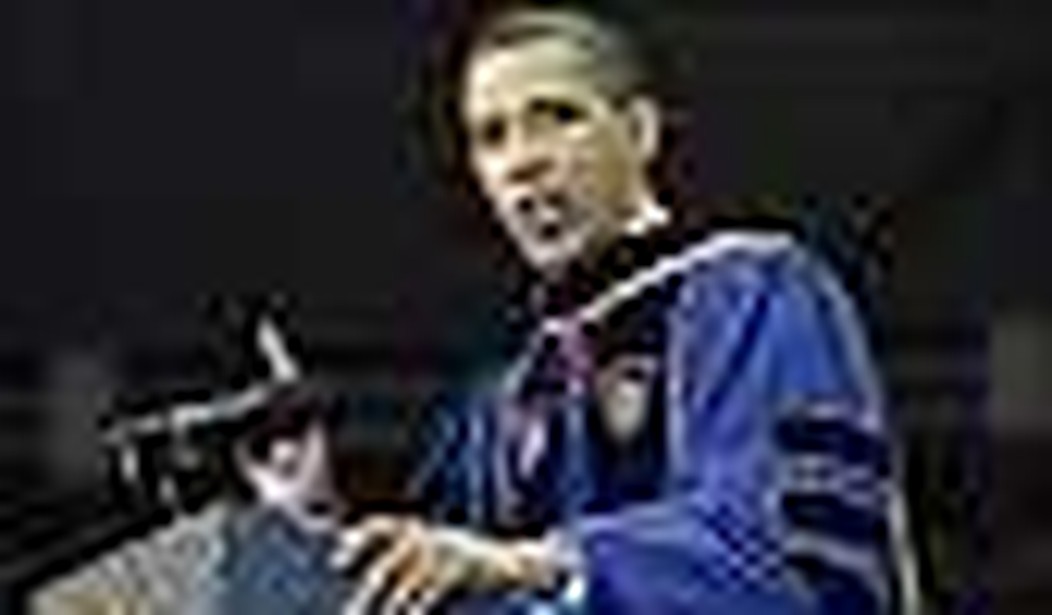Against all odds, Barack Obama spoke and his words resonated with me. No tingling Chris Matthews sensations, mind you, but a loud, Marv Albert-sized “Yes!” and a hope that our political leaders would somehow learn to speak this way.
Before you judge me possessed by the infectious mania which swept the man into office, please read this segment from President Obama’s Notre Dame speech. (It comes about 13:50 in if you watch the video.)
A few days after I won the Democratic nomination, I received an email from a doctor who told me that while he voted for me in the primary, he had a serious concern that might prevent him from voting for me in the general election. He described himself as a Christian who was strongly pro-life, but that’s not what was preventing him from voting for me.
What bothered the doctor was an entry that my campaign staff had posted on my website — an entry that said I would fight “right-wing ideologues who want to take away a woman’s right to choose.” The doctor said that he had assumed I was a reasonable person, but that if I truly believed that every pro-life individual was simply an ideologue who wanted to inflict suffering on women, then I was not very reasonable. He wrote, “I do not ask at this point that you oppose abortion, only that you speak about this issue in fair-minded words.”
Fair-minded words.
After I read the doctor’s letter, I wrote back to him and thanked him. I didn’t change my position, but I did tell my staff to change the words on my website. And I said a prayer that night that I might extend the same presumption of good faith to others that the doctor had extended to me. Because when we do that — when we open our hearts and our minds to those who may not think like we do or believe what we do — that’s when we discover at least the possibility of common ground. …
… Understand — I do not suggest that the debate surrounding abortion can or should go away. No matter how much we may want to fudge it — indeed, while we know that the views of most Americans on the subject are complex and even contradictory — the fact is that at some level, the views of the two camps are irreconcilable. Each side will continue to make its case to the public with passion and conviction. But surely we can do so without reducing those with differing views to caricature.
Open hearts. Open minds. Fair-minded words.
Now here’s why I liked it:
- He’s telling a story. This is how you get an audience emotionally involved. Okay, I’m listening.
- The story has a sympathetic protagonist; a doctor who is a man of conscience and doesn’t like being mischaracterized as a wing nut stereotype you read on the web all the time. Now I’m rooting for the guy in the story.
- “Fair-minded words.” A phrase becomes an incantation. He’s listening. The words resonate with him. They resonate with me. He’s talking about toning down political rhetoric, and he cites an excess committed by someone on his own team.
On that we can agree. He wants to change the tone, and he calls for mutual respect. He wants civility!
The president — let’s call him that, even though a scornfully uttered surname was the most respectful appellation certain parties accorded his predecessor — the president is praying for a “presumption of good faith” about his political opponents.
If his followers are listening and taking this seriously, Republicans are in for even more serious trouble.
Imagine a Left where MoveOn and Kos and Keith and all their spinners and yakkers suddenly turned rhetorically even-tempered. Imagine Carville as gentlemanly as Calvin Borel, or Howard Dean speaking with the calm, measured assurance of an NPR anchor.
Meanwhile, the Right would still be represented by (let’s be honest now) shrill, antagonistic, accusatory, and sometimes downright snarling Savages and grating Great Ones. Double digit electoral votes for life my friends, that would be our fate.
When it comes to political rhetoric, we’ve got to go to school on this guy, this eloquent Mr. President. He’s taking about style, saying he will argue with “passion and conviction,” while still extending a “presumption of good faith” through “fair-minded words.” We need to do that. We need to sound like that.
Note that on the abortion issue he tells the Notre Dame graduating class “at some level, the views of the two camps are irreconcilable.” Even though he will likely appoint three young Supreme Court justices who favor abortion rights, President Obama makes no false promise of utopian compromise, nor does he taunt opponents with anything like a triumphal “case closed.” He makes a rough sketch of some common ground, but this was neither the time nor place for the untidy specifics of this particular issue.
President Obama correctly perceived that the only way he could honor his hosts and their graduating class was to speak with class. Generations of “Fighting Irish” have used Notre Dame to elevate themselves from street brawlers to the middle class. With this speech, the president is telling them to offer a handshake, not a fist, to opponents, and to speak with the fair-minded language of the educated class.
At a time when our politics have devolved into media-driven imbroglios, and where conflict equals ratings, this part of President Obama’s Notre Dame speech resonates as a welcome call to civility. Let’s hope and pray that many will heed his call, in the words of the Notre Dame Victory March, “what though the odds be great or small.”









Join the conversation as a VIP Member